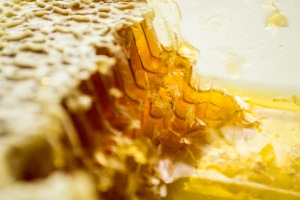Posts Tagged food
Artificial Sweeteners – Aspartame (Equal, Sweet ‘N Low)
Posted by Jesse Thornton in Nutrition and Health on December 9, 2014
 In a continuation of my coverage on artificial sweeteners, this post will be dedicated to one of the most controversial of them all: aspartame. That’s because aspartame has been blamed for causing cancer and attributed to many other afflictions, which is evident in this chain email that circulated in 1998 during the early days of the internet. In particular I remember the stories growing up, before I could even pronounce the word, that claimed aspartame causes cancer, and like many people, I automatically believed it was true. I’ve dug through the scientific literature, there was a ton of it to look through…part of the reason it took so long for me to write this article. Not surprisingly I’ve found that most of the claims are unsubstantiated by evidence, despite the fact that many of these studies are 20-30 years old – something that I do take issue with. I did find some more recent compelling research, backed by a plausible mechanism on the potential neurotoxic effects of long-term aspartame consumption. Those studies used large doses of aspartame, but were within the FDA acceptable daily intake limit, and I would urge you to read on for more context. Aspartame may also have an affect on metabolic parameters related to diabetes and obesity, as well as composition of gut bacteria. The evidence is conflicting, however, and many of these same issues are brought up surrounding other artificial sweeteners as well. Read the rest of this entry »
In a continuation of my coverage on artificial sweeteners, this post will be dedicated to one of the most controversial of them all: aspartame. That’s because aspartame has been blamed for causing cancer and attributed to many other afflictions, which is evident in this chain email that circulated in 1998 during the early days of the internet. In particular I remember the stories growing up, before I could even pronounce the word, that claimed aspartame causes cancer, and like many people, I automatically believed it was true. I’ve dug through the scientific literature, there was a ton of it to look through…part of the reason it took so long for me to write this article. Not surprisingly I’ve found that most of the claims are unsubstantiated by evidence, despite the fact that many of these studies are 20-30 years old – something that I do take issue with. I did find some more recent compelling research, backed by a plausible mechanism on the potential neurotoxic effects of long-term aspartame consumption. Those studies used large doses of aspartame, but were within the FDA acceptable daily intake limit, and I would urge you to read on for more context. Aspartame may also have an affect on metabolic parameters related to diabetes and obesity, as well as composition of gut bacteria. The evidence is conflicting, however, and many of these same issues are brought up surrounding other artificial sweeteners as well. Read the rest of this entry »
Artificial Sweeteners – Sucralose (Splenda)
Posted by Jesse Thornton in Nutrition and Health on August 11, 2014
 Artificial sweeteners are sugar substitutes that provide no nutritional value and are made by chemical processes, rather than naturally occurring in the environment. As such, there’s always a lot of negative attention directed toward artificial sweeteners and indeed, anything labeled as “artificial.” I’ve decided to do a series of articles on artificial sweeteners to find out what claims are true and what isn’t, instead of doing one article with a bullet point list. There’s just too much information to condense everything into one article and I like to include as much context as possible because most things are not black and white issues, and this topic is no exception. So the first article in this series will concentrate on what science currently has to say about the most widely used artificial sweetener on the market: sucralose.
Artificial sweeteners are sugar substitutes that provide no nutritional value and are made by chemical processes, rather than naturally occurring in the environment. As such, there’s always a lot of negative attention directed toward artificial sweeteners and indeed, anything labeled as “artificial.” I’ve decided to do a series of articles on artificial sweeteners to find out what claims are true and what isn’t, instead of doing one article with a bullet point list. There’s just too much information to condense everything into one article and I like to include as much context as possible because most things are not black and white issues, and this topic is no exception. So the first article in this series will concentrate on what science currently has to say about the most widely used artificial sweetener on the market: sucralose.
Sucralose (Splenda)
Surcalose, best known as the key ingredient in Splenda, is a non-nutritive sweetener 600 times sweeter than sugar by weight. The molecule itself is produced by a series of chemical reactions, starting with sugar as a base, then, stripping away 3 hydroxyl groups from the original sugar molecule and replacing them with chlorine atoms. The added chlorine atoms make sucralose sweeter than sugar while also preventing it from being metabolized by the body. This means that sucralose is not used as an energy source by the body and is simply eliminated as a waste product. Read the rest of this entry »
Hype and Potential Behind the Therapeutic Promises of Curcumin: From Alzheimer’s to Cystic Fibrosis
Posted by Jesse Thornton in Nutrition and Health on July 3, 2014
Turmeric is a root belonging to the ginger family, and like ginger, is used prominently in oriental cuisines. Owing its yellow color to a compound called curcumin, the root is probably best known as the spice used in curries. Like its ginger cousin, turmeric has been used for medicinal purposes for thousands of years. I’m not entirely sure how we know the timeline or how much truth is in that statement. Nonetheless, I will parrot that as truth since we as humans often have this immutable faith in the supposed medicinal value of things we pull out of the ground. As it turns out, there does appear to be some real potential medical applications, not with turmeric itself, but with curcumin. Some of the claims are hype, some of them show a lot of promise with a little more research, and there may actually be some benefit in taking curcumin now.
High Fructose Corn Syrup is Not Special in the Sugar Debate
Posted by Jesse Thornton in Food myths on May 7, 2014

“I don’t have the time, desire or the need to check every label to see if it contains this one little ingredient.”
High fructose corn syrup (HFCS) has become the latest target in the war against the obesity epidemic. The very fact that it exists because it is a highly processed corn product makes it ripe for sensationalized headlines like “5 Reasons High Fructose Corn Syrup Will Kill You.” The name of the product itself makes it sound ominous. So what is the truth? Will HFCS kill you and, perhaps, more importantly, is it really anymore dangerous than the thing that it commonly replaces, table sugar? The short answer is, no. It is almost exactly the same as regular sugar and is no more harmful than sugar when consumed in amounts that are within or below the recommended dietary guidelines.
Does Local Honey Help Relieve Seasonal Allergies?
Posted by Jesse Thornton in Nutrition and Health on April 21, 2014
 I know that its that time of year again when I walk outside and immediately start sneezing. Spring is here in full force and so are my allergies. Like most seasonal allergy sufferers, I take nasal spray corticosteroids and antihistamine tablets in order to remain in a somewhat functional state. Honey is a popular natural and alternative remedy for allergies. Its supposed to provide immunity against allergy causing pollens because the honey itself contains pollen. Its thought that locally collected honey that is untreated and not pasteurized works best because it contains local pollen as well as enzymes from the bees that aren’t destroyed or lost by heating and filtering. I’ve experimented with honey myself in an attempt to relieve my symptoms, from raw honey to royal jelly with no luck. I’m still curious to see what the science has to say about the use of honey to treat allergies even though it doesn’t seem to work for me.
I know that its that time of year again when I walk outside and immediately start sneezing. Spring is here in full force and so are my allergies. Like most seasonal allergy sufferers, I take nasal spray corticosteroids and antihistamine tablets in order to remain in a somewhat functional state. Honey is a popular natural and alternative remedy for allergies. Its supposed to provide immunity against allergy causing pollens because the honey itself contains pollen. Its thought that locally collected honey that is untreated and not pasteurized works best because it contains local pollen as well as enzymes from the bees that aren’t destroyed or lost by heating and filtering. I’ve experimented with honey myself in an attempt to relieve my symptoms, from raw honey to royal jelly with no luck. I’m still curious to see what the science has to say about the use of honey to treat allergies even though it doesn’t seem to work for me.
Raw vs Cooked Vegetables
Posted by Jesse Thornton in Food myths, Nutrition and Health on April 8, 2014

Credit: San Francisco Citizen
Many new diets make claims that raw food, particularly vegetables, is better for you based on the assumption that our ancestors evolved to eat food that way and cooking destroys some of the nutrients. As I write this sentence I am neutral on the claims made of consuming raw vegetables. The claims do make sense to me because I know that heat tends to destabilize the structure of proteins, essentially rendering them inactive, and alters the structure of chemical compounds (please note I use the word chemical here in a general sense to describe naturally occurring chemicals, such as those made by plants, as well as synthetic chemicals). But I also know that the process of digestion is designed to do exactly that. With that said, does it even matter if you eat your vegetables raw if everything going down your gullet will be broken down to basic molecular units? Read the rest of this entry »
Ginger May Relieve Arthritis Pain and Inflammation
Posted by Jesse Thornton in Nutrition and Health on April 1, 2014

Ginger root is one of my new favorite things.
Last year I began having pain in my wrists and fingers making it difficult to use my hands, not only because of the pain but also because the joints would lock up and limit the amount of movement I had with them. Initially, I thought it was just wear and tear over the years from the gym and playing sports growing up. Then it started happening in my toes and feet and eventually around my ribs and chest cavity. Some days I would feel completely fine, while other days I found it difficult to move and could only take shallow breathes due to the pain in my chest when my lungs expanded. It was getting in the way and making it hard to be productive. Read the rest of this entry »
Subway Bread Will Not Give You Cancer
Posted by Jesse Thornton in Food myths on March 27, 2014
Earlier this year Vani Hari who runs the blog FoodBabe began an online petition for Subway to remove an ingredient from their bread called azodicarbonamide or ADA for short. She makes statements like ADA is a component used to make yoga mats, it causes respiratory issues, and when heated ADA is linked to tumor development and cancer. Major news networks like CNN and USA Today picked up the story and ran with it, pretty much citing these claims verbatim. It becomes much less interesting when you actually look into the details but the news and people like Vani make their living by fear mongering and sensationalizing pseudoscience. I find it detestable. Read the rest of this entry »
Why I’m in Favor of Genetically Modified Food
Posted by Jesse Thornton in Food myths on March 21, 2014

Credit: Goetze’s Candy
A large source of fear stems from a lack of understanding, and a lot of people are afraid of genetically modified food. Simply injecting the word “genetic” into anything conjures up images of any number of horrific scenarios created by modern pop culture that portray an apocalyptic world created by evil scientists who went too far “playing god.” Look up any random poll online on the subject and you’ll see the majority of the public are against genetically modified food. Personally, I feel that fear is unjustified. However, I don’t have a background in this subject and I don’t exactly know the reasons people have behind the fear of genetically modified food besides the unreasonable “scientists shouldn’t be tampering with our food” argument. So I decided to start my first blog post off looking further into this topic because I find the controversy compelling. There’s a lot of ground to cover on the subject but I try to go over all the points that I feel are important, especially when it comes to dispelling all the misconceptions. Read the rest of this entry »



Misguided Concerns Over Food Labeling
Posted by Jesse Thornton in Commentary, Nutrition and Health on March 11, 2015
Photo credit: CT Senate Democrats
Earlier this year Oklahoma State University released a summary of the results of an online survey polled from 1000 people in the US that tracks consumer concerns over food safety and regulation. From the polled sample, 82% supported mandatory labeling of food containing genetically modified organisms, or GMOs. A real discredit to those fighting for GMO labeling was the finding that 85% also supported mandatory labeling of food containing DNA. Strikingly, only 39% of respondents were in favor of a tax on sugared sodas, which is an issue that legitimately poses health risks to the US population as I covered in a previous article, and 55% support a ban on transfat, which also poses real health risks. Read the rest of this entry »
Share this:
food, genetically modified food, health, science, Skepticism, sugar
Leave a comment